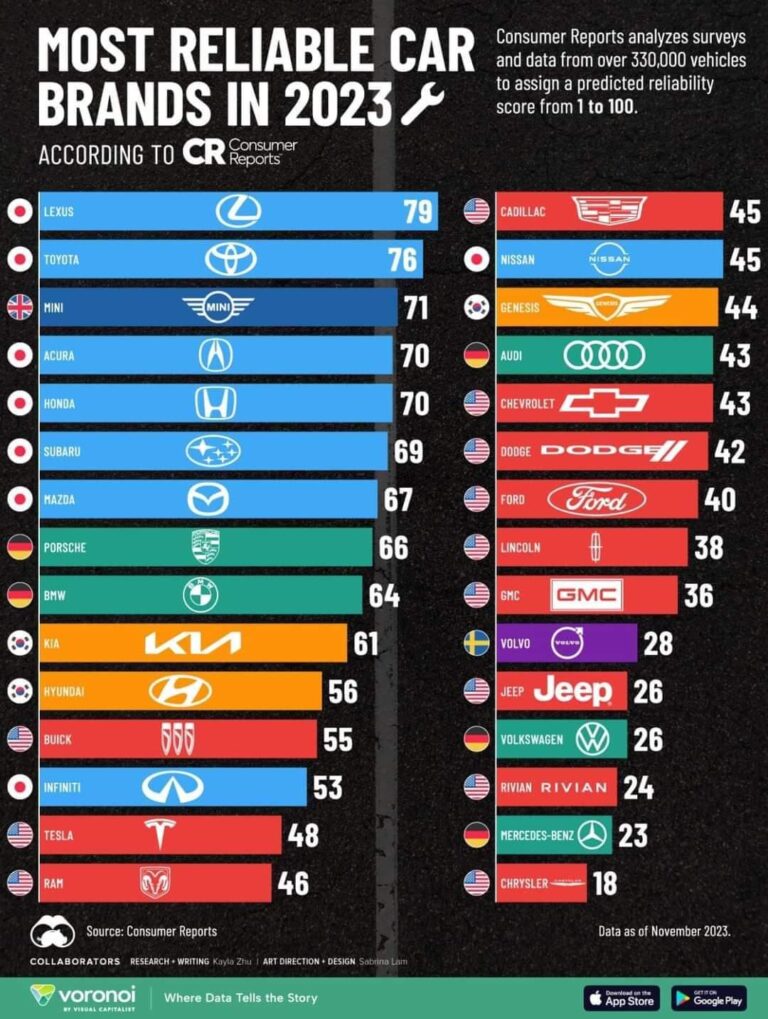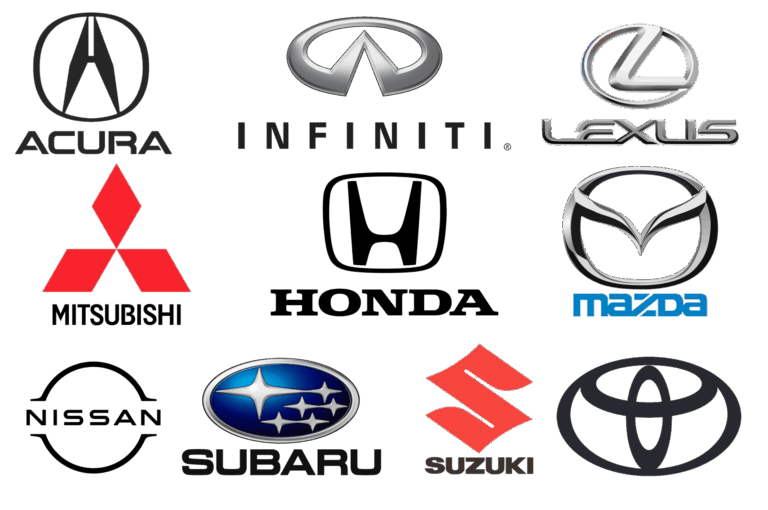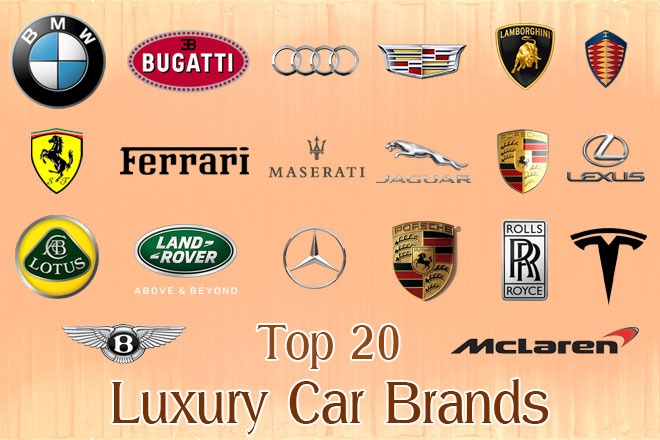German Luxury Car Brands: The Epitome of Automotive Excellence
German Luxury Car Brands: The Epitome of Automotive Excellence cars.truckstrend.com
In the pantheon of global automotive manufacturing, German luxury car brands stand as an undisputed benchmark for engineering prowess, innovative technology, and unparalleled prestige. More than just modes of transport, these vehicles are expressions of design philosophy, performance ambition, and a commitment to meticulous craftsmanship that has been refined over a century. From the autobahns of Germany to the boulevards of the world, brands like Mercedes-Benz, BMW, Audi, and Porsche have cultivated an enduring reputation for delivering a driving experience that combines exhilarating performance with supreme comfort and cutting-edge features. This comprehensive guide delves into the world of German luxury cars, exploring their unique appeal, the pillars of their success, and what makes them a coveted choice for discerning buyers worldwide.
The Pillars of German Luxury: Engineering Excellence and Innovation
German Luxury Car Brands: The Epitome of Automotive Excellence
At the heart of every German luxury car lies a philosophy deeply rooted in precision engineering and continuous innovation. This isn’t merely about power or opulence; it’s about a holistic approach to vehicle design and manufacturing that prioritizes performance, safety, comfort, and the integration of advanced technology.
- Precision Engineering: German manufacturers are renowned for their obsessive attention to detail. Every component, from engine parts to interior trim, is engineered to exacting standards, resulting in vehicles known for their robust build quality, durability, and a tactile sense of solidity. This precision translates into superior handling, a quiet cabin, and a refined driving experience.
- Performance and Dynamics: Whether it’s the "Ultimate Driving Machine" ethos of BMW, the "Best or Nothing" philosophy of Mercedes-Benz, or Audi’s "Vorsprung durch Technik" (Progress through Technology), performance is paramount. This encompasses not just powerful engines but also sophisticated suspension systems, responsive steering, and advanced braking capabilities that ensure an engaging and secure drive at any speed.
- Technological Leadership: German luxury brands are often at the forefront of automotive technology. They were among the first to introduce features like anti-lock braking systems (ABS), electronic stability programs (ESP), advanced infotainment systems, sophisticated driver-assistance suites (ADAS), and pioneering hybrid and electric powertrains. This commitment to innovation keeps their vehicles at the cutting edge of what’s possible.
- Timeless Design: While distinct in their aesthetics, German luxury cars share a common thread of elegant, purposeful design. They often eschew fleeting trends in favor of classic lines, balanced proportions, and a functional beauty that remains appealing for years. Interiors are ergonomically designed, featuring high-quality materials, meticulous finishes, and intuitive controls.
The Big Three: A Closer Look
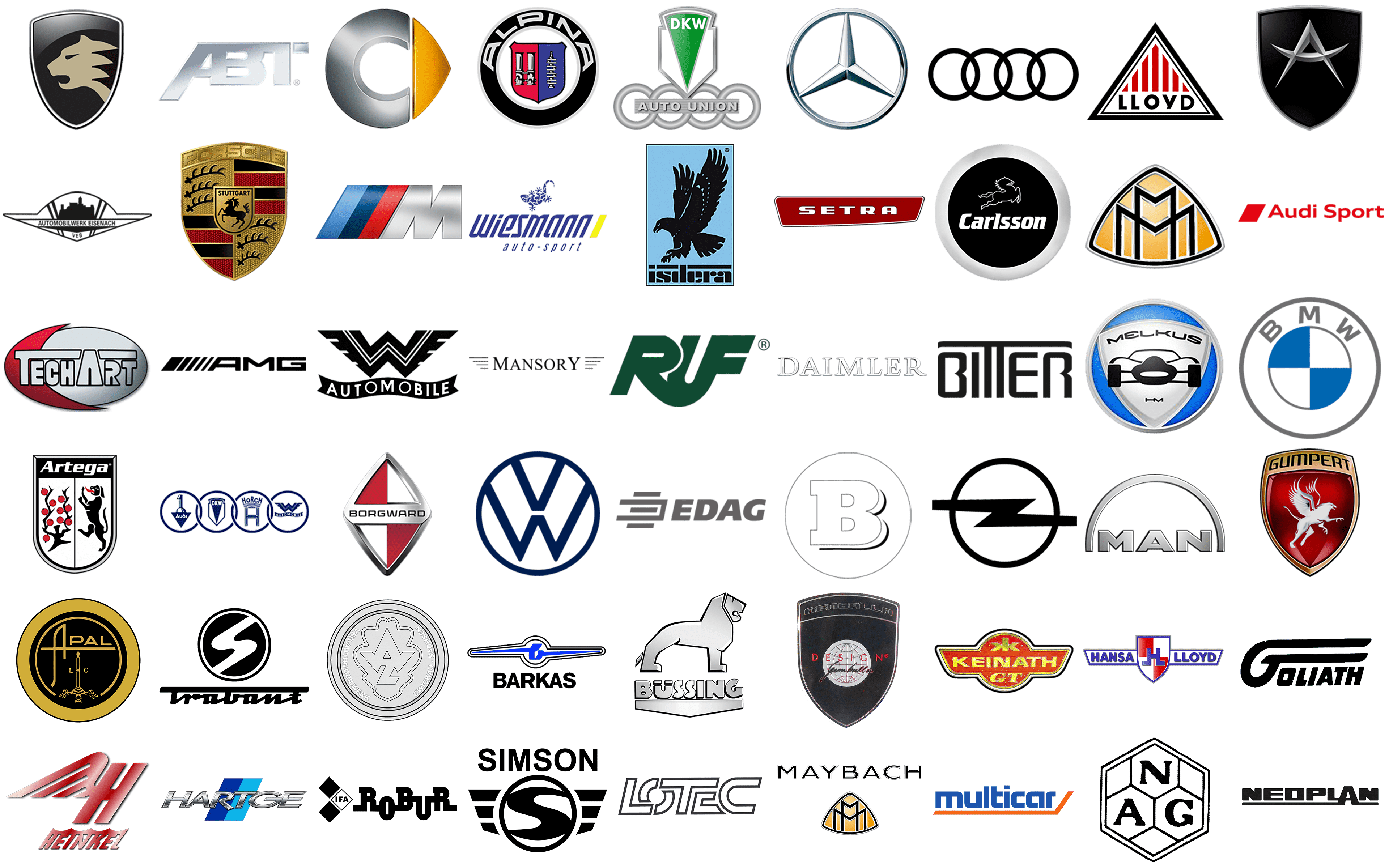
While many brands contribute to Germany’s luxury automotive legacy, three stand out as the dominant forces: Mercedes-Benz, BMW, and Audi. Each offers a distinct personality while upholding the core tenets of German luxury.
Mercedes-Benz: The Standard Bearer of Classic Luxury
Often considered the oldest and most traditional luxury car manufacturer, Mercedes-Benz epitomizes prestige, comfort, and technological sophistication.
- History & Ethos: Tracing its roots back to the invention of the automobile, Mercedes-Benz has consistently set benchmarks for luxury, safety, and engineering. Its motto, "The Best or Nothing," reflects a relentless pursuit of perfection.
- Key Characteristics: Known for its stately elegance, supremely comfortable rides, and groundbreaking safety innovations. Mercedes-Benz vehicles exude a sense of refined power and effortless luxury. Its interiors are often more opulent and feature a classic, elegant aesthetic.
- Signature Models: The S-Class is globally recognized as the pinnacle of luxury sedans. Other popular models include the executive E-Class, the compact C-Class, and a comprehensive range of SUVs (GLC, GLE, GLS), and the high-performance AMG division.
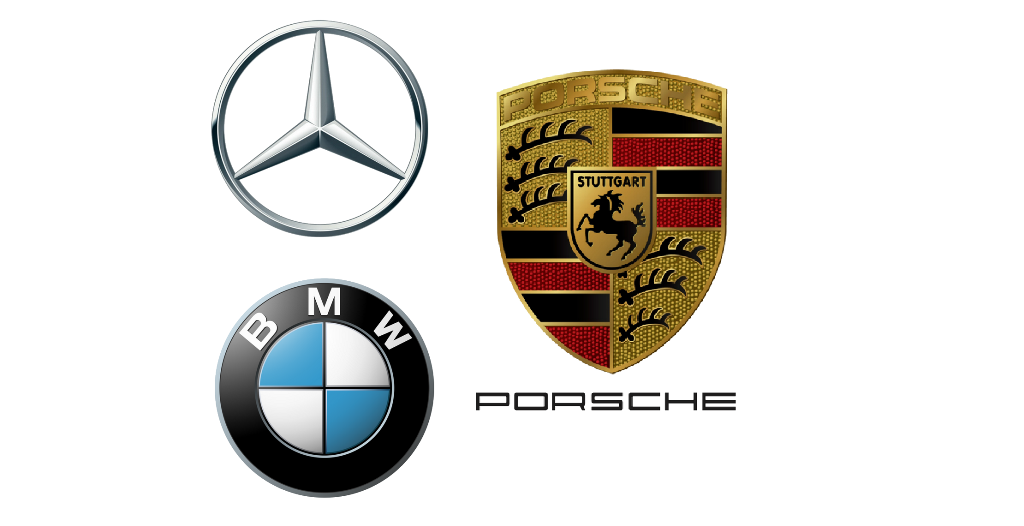
BMW: The Ultimate Driving Machine
BMW has carved its niche by focusing on driving dynamics, sporty performance, and driver engagement.
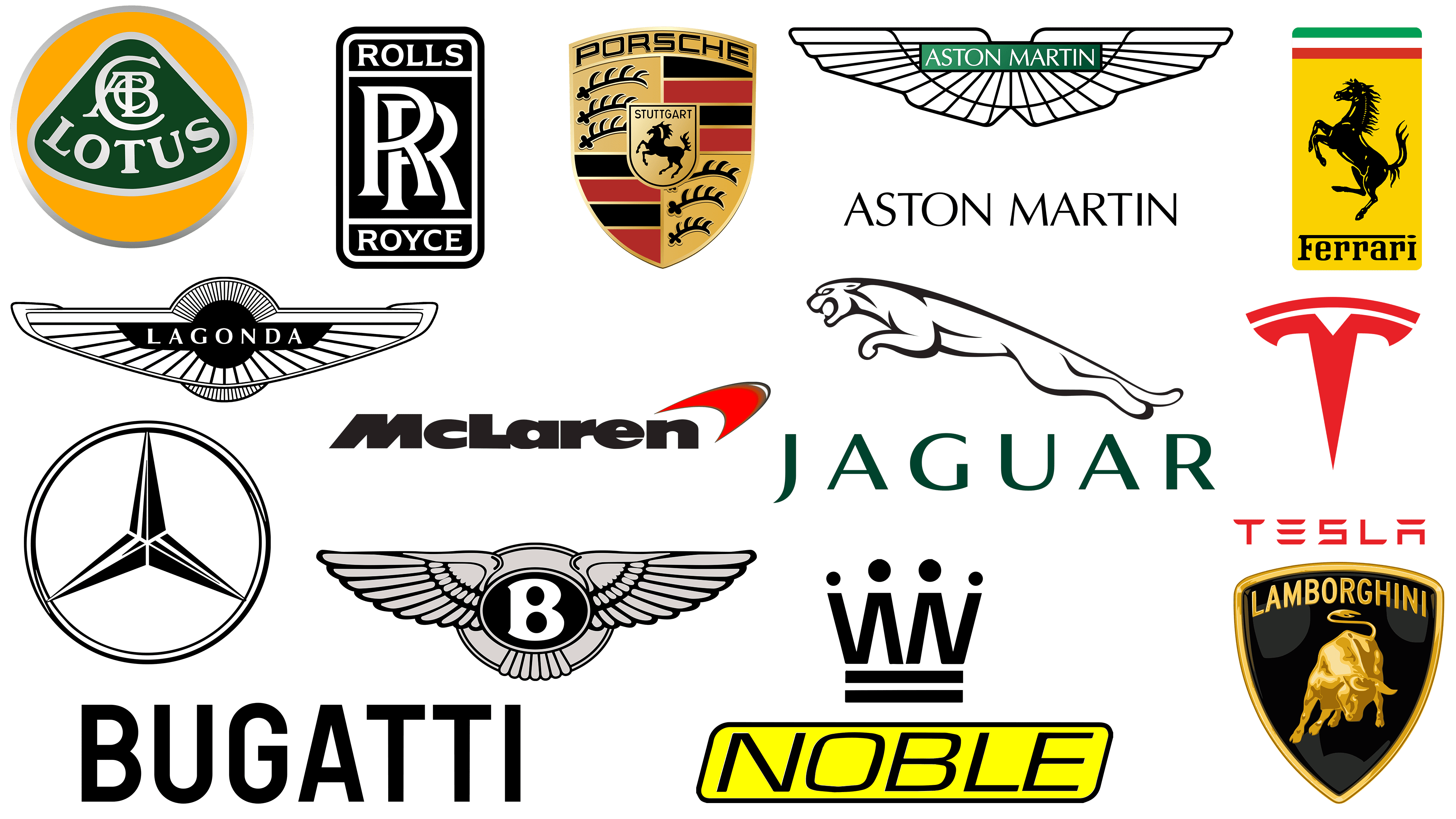
- History & Ethos: Emerging from aircraft engine manufacturing, BMW’s "Sheer Driving Pleasure" or "The Ultimate Driving Machine" philosophy emphasizes a direct connection between the driver and the road.
- Key Characteristics: BMW cars are celebrated for their precise steering, balanced chassis, and powerful, responsive engines. They offer a sportier, more engaging driving experience compared to their rivals, often featuring a driver-centric cockpit design.
- Signature Models: The iconic 3 Series sedan is a global bestseller, revered for its blend of performance and practicality. The 5 Series offers a more executive sports sedan experience, while the X-series SUVs (X3, X5, X7) bring BMW’s driving dynamics to the utility segment. The M division produces high-performance variants.
Audi: Progress Through Technology and Design
Audi has risen to prominence by combining sophisticated technology, distinctive design, and the legendary quattro all-wheel-drive system.
- History & Ethos: With its "Vorsprung durch Technik" motto, Audi emphasizes technological advancement and innovative design. It successfully redefined its image in the late 20th century to become a formidable luxury competitor.
- Key Characteristics: Audi vehicles are celebrated for their sleek, modern aesthetics, meticulously crafted interiors, and cutting-edge infotainment systems. The quattro all-wheel-drive system provides exceptional grip and confidence in diverse driving conditions.
- Signature Models: The A4 and A6 sedans are popular choices, known for their refined ride and advanced features. The Q5 and Q7 SUVs are strong contenders in their segments, offering a blend of luxury and utility. The high-performance RS models and the R8 supercar showcase Audi’s engineering prowess.
Beyond the Big Three: Niche and Ultra-Luxury Players
While the Big Three dominate the volume luxury market, other German brands cater to more specialized or ultra-luxury segments.
- Porsche: Synonymous with sports cars, Porsche has successfully expanded into luxury SUVs (Cayenne, Macan) and sedans (Panamera) without compromising its core performance DNA. Porsche vehicles offer an unparalleled blend of exhilarating performance, precision engineering, and surprisingly practical everyday usability. They are often considered the ultimate driver’s cars that also happen to be luxurious.
- Maybach (Mercedes-Benz Sub-brand): Reborn as an ultra-luxury sub-brand of Mercedes-Benz, Maybach vehicles represent the zenith of automotive opulence. They offer bespoke craftsmanship, unparalleled rear-seat comfort, and exclusive features, catering to an elite clientele seeking the ultimate in automotive luxury and prestige.
- Alpina: A lesser-known but highly respected German manufacturer and tuner, Alpina takes BMW models and re-engineers them into even more exclusive, high-performance, and luxuriously refined vehicles. They offer a blend of M-car performance with a more understated, bespoke elegance and comfort, often appealing to connoisseurs.
Why Choose a German Luxury Car? Benefits and Appeal
The allure of German luxury cars extends beyond mere branding; it’s rooted in tangible benefits:
- Unrivaled Driving Experience: From the engaging dynamics of a BMW to the composed comfort of a Mercedes and the refined precision of an Audi, these cars offer a driving experience that is both exhilarating and supremely comfortable.
- Cutting-Edge Technology: Owners benefit from the latest innovations in infotainment, connectivity, driver-assistance systems, and powertrain technology, ensuring a modern and intuitive experience.
- Superior Build Quality and Durability: German engineering is synonymous with robustness. These vehicles are built to last, often maintaining their structural integrity and mechanical reliability over many years.
- Prestige and Status: Owning a German luxury car is often seen as a statement of success and discerning taste, reflecting an appreciation for quality, performance, and advanced engineering.
- Advanced Safety Features: German brands are pioneers in automotive safety, consistently integrating active and passive safety systems that aim to prevent accidents and protect occupants.
- Strong Resale Value: While depreciation is a factor for all luxury cars, German models often hold their value better than many competitors, thanks to their enduring demand and reputation for quality.
Important Considerations Before Buying
While the benefits are compelling, potential buyers should be aware of certain considerations:
- Higher Initial Cost: German luxury cars command a premium price tag compared to mainstream brands.
- Cost of Ownership: Beyond the purchase price, luxury vehicles typically incur higher costs for insurance, routine maintenance, and replacement parts, which are often specialized and imported.
- Maintenance & Servicing: These cars require specialized tools and expertise. While dealerships offer certified service, independent specialists can be a more cost-effective option, provided they are reputable and experienced with German brands.
- Fuel Efficiency: While modern German engines are increasingly efficient, particularly with hybrid and electric options, high-performance models can still have higher fuel consumption.
- Depreciation: While better than some, luxury cars still depreciate significantly, especially in the first few years.
Practical Advice for Prospective Buyers
For those considering a German luxury car, here’s some actionable advice:
- Define Your Needs: Are you prioritizing performance, comfort, technology, or space? This will help narrow down the brand and model.
- Research Thoroughly: Explore different trims, engine options, and available features for your chosen models. Read reviews from trusted automotive publications.
- Test Drive Extensively: Drive multiple models from different brands to truly feel the differences in driving dynamics, comfort, and interior ergonomics. Pay attention to how the car handles in various conditions.
- Budget Realistically: Account not just for the purchase price, but also for insurance, fuel, maintenance, and potential repairs. Get quotes for these costs upfront.
- Consider Certified Pre-Owned (CPO): CPO programs offered by dealerships can provide a more affordable entry point into luxury ownership, often with extended warranties and rigorous inspections, mitigating some risks of buying used.
- Understand Warranty and Service Plans: Familiarize yourself with the factory warranty and explore extended warranty options or prepaid maintenance plans to manage future costs.
- Explore Leasing vs. Buying: Leasing can be an attractive option for those who prefer to drive a new car every few years, benefit from lower monthly payments, and avoid long-term maintenance costs.
- Get a Pre-Purchase Inspection (for Used Cars): Even for CPO vehicles, a professional inspection by an independent mechanic specializing in German cars can provide peace of mind.
Challenges and Solutions
- Challenge: High Maintenance Costs:
- Solution: Invest in an extended warranty or a pre-paid service plan. Research reputable independent mechanics specializing in German cars, who often offer more competitive rates than dealerships for routine maintenance.
- Challenge: Rapid Depreciation (especially in early years):
- Solution: Consider buying a 2-3 year old Certified Pre-Owned model, which has already absorbed the steepest part of the depreciation curve. Lease if you prefer to always drive a new car and want predictable monthly costs.
- Challenge: Complex Technology:
- Solution: Take the time to familiarize yourself with the infotainment system and driver-assistance features during the dealer handover. Utilize online tutorials, owner forums, and the car’s manual to master its functionalities.
- Challenge: Environmental Concerns (historically associated with large engines):
- Solution: Modern German luxury brands are heavily investing in electrification. Explore their growing range of plug-in hybrids (PHEVs) and battery electric vehicles (BEVs) which offer strong performance with zero emissions.
Price Table: Representative German Luxury Car Models
Please note: Prices are approximate starting MSRPs for base models in USD and can vary significantly based on trim levels, optional features, region, and current market conditions. This table is for illustrative purposes only.
| Brand | Model | Type | Starting MSRP (Approx. USD) | Key Highlight |
|---|---|---|---|---|
| Mercedes-Benz | C-Class Sedan | Compact Luxury Sedan | $48,000 | Elegant design, comfortable ride, advanced tech. |
| E-Class Sedan | Mid-size Luxury Sedan | $62,000 | Refined elegance, sophisticated interior, strong performance. | |
| S-Class Sedan | Full-size Luxury Sedan | $117,000 | Flagship luxury, ultimate comfort, cutting-edge innovation. | |
| GLC SUV | Compact Luxury SUV | $49,000 | Balanced performance, premium interior, versatile. | |
| BMW | 3 Series Sedan | Compact Sports Sedan | $45,000 | Benchmark for driving dynamics, engaging performance. |
| 5 Series Sedan | Mid-size Sports Sedan | $59,000 | Balanced sportiness and luxury, refined ride. | |
| X5 SUV | Mid-size Luxury SUV | $66,000 | Dynamic handling for an SUV, spacious, luxurious. | |
| Audi | A4 Sedan | Compact Luxury Sedan | $42,000 | Sleek design, refined interior, standard quattro. |
| A6 Sedan | Mid-size Luxury Sedan | $59,000 | Sophisticated styling, tech-rich cabin, smooth ride. | |
| Q5 SUV | Compact Luxury SUV | $46,000 | Balanced performance, upscale interior, practical. | |
| Porsche | Macan | Compact Luxury SUV | $62,000 | Sports car handling in an SUV, engaging to drive. |
| 911 Carrera | Sports Car | $115,000 | Iconic performance, timeless design, pure driving pleasure. | |
| Panamera | Luxury Sports Sedan | $93,000 | Sports car performance with sedan practicality. |
Frequently Asked Questions (FAQ)
Q1: Are German luxury cars reliable?
A1: Yes, generally. While they are complex machines with advanced technology, German luxury brands have a strong reputation for engineering quality and durability. Reliability often depends on diligent maintenance and proper care. Some models or specific technologies might have known issues, but overall, they are built to high standards.
Q2: What’s the main difference between BMW, Mercedes-Benz, and Audi?
A2:
- BMW: Focuses on driving dynamics, sportiness, and driver engagement. "The Ultimate Driving Machine."
- Mercedes-Benz: Emphasizes classic luxury, supreme comfort, prestige, and pioneering safety technology. "The Best or Nothing."
- Audi: Known for sophisticated design, cutting-edge technology, and the confidence of quattro all-wheel drive. "Vorsprung durch Technik" (Progress through Technology).
Q3: Is it worth buying a used German luxury car?
A3: Yes, it can be a great value. Used German luxury cars often offer significant savings over new models, making luxury ownership more accessible. Opting for a Certified Pre-Owned (CPO) vehicle from a dealership is often recommended, as they come with warranties and have undergone rigorous inspections. Always get a pre-purchase inspection from an independent mechanic.
Q4: Are electric German luxury cars available?
A4: Absolutely. All major German luxury brands are heavily investing in electrification. Mercedes-Benz has its EQ line (EQE, EQS), BMW has the i series (i4, i5, i7, iX), Audi has the e-tron range (Q4 e-tron, Q8 e-tron, e-tron GT), and Porsche offers the Taycan. These electric vehicles maintain the performance, luxury, and technological sophistication expected of their brands.
Q5: What is the most expensive German luxury car?
A5: While models and bespoke customizations can vary wildly, the most expensive production German luxury cars are typically ultra-luxury variants of flagship models or high-performance limited editions. The Mercedes-Maybach S-Class or GLS, high-end Porsche 911 variants (like the GT2 RS or S/T), and exclusive BMW M or Audi RS models with extensive personalization can easily reach well into the six figures, sometimes exceeding seven figures for truly rare editions.
Conclusion
German luxury car brands represent a pinnacle of automotive achievement, a testament to a relentless pursuit of excellence in engineering, design, and performance. They offer more than just transportation; they provide an experience defined by exhilarating dynamics, sophisticated technology, and an undeniable sense of prestige. While ownership comes with its considerations, the benefits of driving a vehicle crafted with such meticulous attention to detail often outweigh the challenges for those who value the finest things in life. As the automotive landscape evolves, these iconic brands continue to innovate, embracing electric powertrains and autonomous technologies, ensuring that "German Luxury" remains synonymous with the very best the automotive world has to offer for generations to come.


